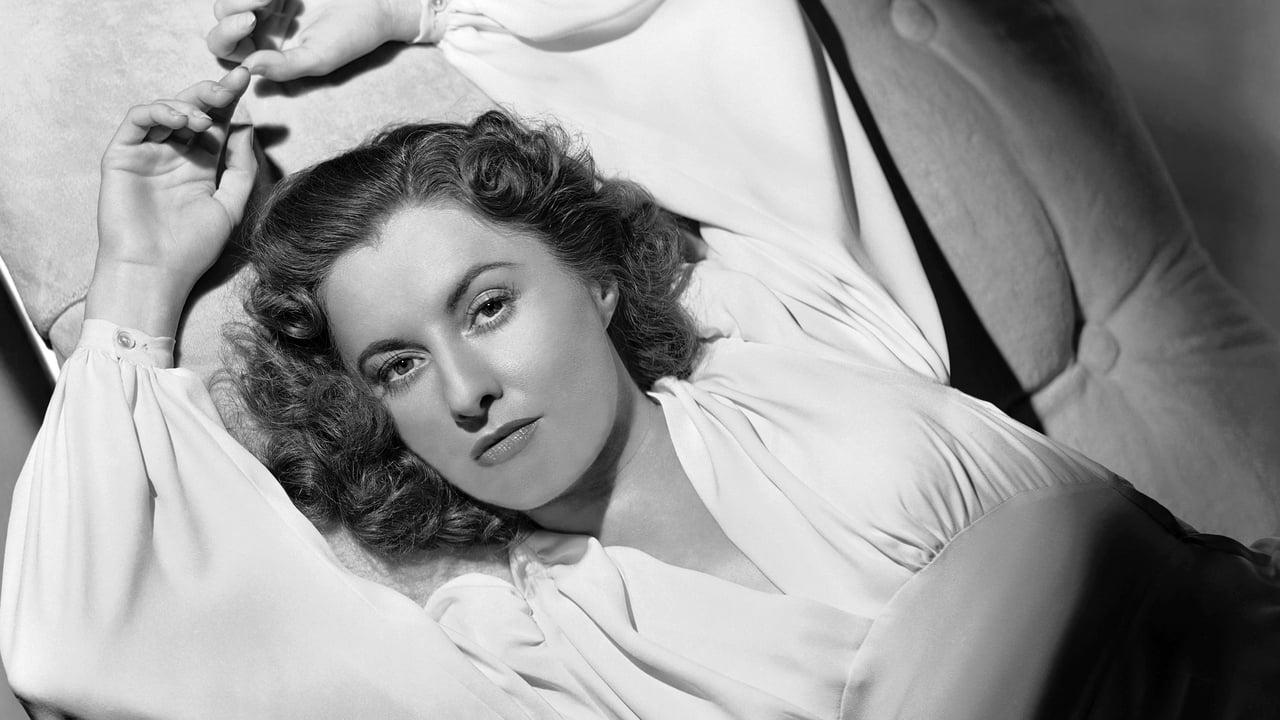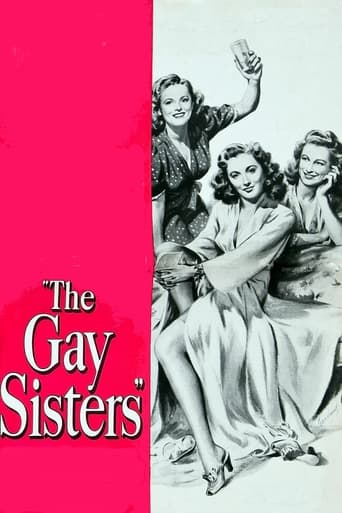TrueJoshNight
Truly Dreadful Film
HottWwjdIam
There is just so much movie here. For some it may be too much. But in the same secretly sarcastic way most telemarketers say the phrase, the title of this one is particularly apt.
Phillipa
Strong acting helps the film overcome an uncertain premise and create characters that hold our attention absolutely.
Dana
An old-fashioned movie made with new-fashioned finesse.
JohnHowardReid
This one is a lavishly and glossily produced weepie melodrama, full of the usual tried and true plot devices. In fact, I would go so far as to say that the situations are even less convincing than the average. On the other hand, it does have a remarkable flashback sequence where the off-screen commentary (by Barbara Stanwyck) is impishly biting and satirical. Most of the players are also more convincing than we might expect. Barbara is delightfully cool and assured in a tailor-made role. She has the lion's share of the action as well as the most fetching costumes. George Brent, on the other hand, starts well but soon reverts to type. On the other hand, it's always a pleasure to watch players like Gene Lockhart and Donald Crisp go through their paces. Donald Woods has an impressive opening scene, but then unaccountably disappears from the action altogether. But most impressive of all is young Larry Simms, of all people ("Alexander" in the Blondie series), who gives a surprisingly skilled and realistic portrayal in a rare dramatic part. P.S. I would describe Erville Alderson's role as that of a witness rather than a farmer.
mark.waltz
This highly underrated drama has seemed to have lost its way along with the many court documents filed in the case of the Gaylord family. Whuile the story seems to wallow in the melodramatic structure of soap operas, it is interesting, not only for its outstanding leading lady (Barbara Stanwyck) but its view of the family traditions of honor and the sometimes seemingly hypocritical lives of those in the public eye. This could be influenced by any number of celebrity poor little rich girls, from Barbara Hutton to Doris Duke, with the Gaylord family obviously influential in New York society like the wealthy Astors were around the same time. Young Ms. Gaylord (Mary Thomas) is first seen with her widowed father who is going off to fight in World War I, and the strength of her character dissolves when she realizes her legacy. As 25 years go by, she turns into a force to be reckoned with. Stanwyck, one of the greatest powerhouses of the golden age of Hollywood, delivers a performance that covers all emotions-toughness, vulnerability, humor, and even sexiness. Once again, she is paired with George Brent, the man making claims against the estate. Geraldine Fitzgerald and Nancy Coleman give strong performances as her sisters, with the wonderful Donald Crisp in great support as the family retainer. A great deal of the detail is shown with everything that wealthy families like this go through in estate court, creating law books based on their probate case, and being utilized by law students in their studies. While the narrative gets a bit overwrought by sudden revelations that pop up out of nowhere, it is unique in its storytelling even if at times it does seem to be rambling all over the place. Overshadowed possibly because of Warner Brothers' two other soap operas of 1942 ("Now Voyager" and "King's Row"), "The Gay Sisters" is certainly better than their other "sister soap", "In This Our Life", in which Bette Davis and Olivia de Havilland played two sisters, one irredeemably bad and the other oh-so-sweetly good. Each of the sisters has their own distinctive personality, although it is made very clear who is boss when Barbara Stanwyck is on screen. The music department and photography of the Warner Brothers production team made sure that every detail was outstanding, and the artistic look of the film is breathtaking. The storyline is romantic and filled with conflict. It is certainly no different than what producer Ross Hunter and director Douglas Sirk would do with the series of soaps they made at Universal with such leading ladies as Stanwyck, Jane Wyman, Lana Turner and Susan Hayward. The film is also noteworthy as the major debut of Gig Young who liked his on-screen character's name so much that he utilized it for his professional name.
MartinHafer
Despite the titillating sounding title, the film is about the three Gaylord sisters--not some weird porn flick.The film begins with a father about to go off to war. He tells his oldest daughter that if anything happens to him to NEVER sell the family estate...never. Well, not at all surprisingly since it was telegraphed all the way, the guy is pushing up daisies almost immediately afterwords and for the next 23 years (yes, 23 years), the will is in probate--being contested by all sorts of folks. During all this time, the oldest daughter (Barbara Stanwyck) is steadfast--no matter what happens, they will not sell their home.The particular party who is now contesting the will is Charles Barclay (a great choice for a name, huh?)--played by George Brent. Why he and Stanwyck are fighting so bitterly and why he insists he MUST have the mansion (even though his cut, if the court upholds it for Brent's charity, is only 10% and they'd never award him the mansion) is eventually revealed...and this seemed pretty dumb. Although you never had any indication of this before, you find out that the two had very briefly been married--and almost no one knew about it. This is very awkward and the flashback scene showing the marriage and breakup is poorly done and makes no sense. Why they had it narrated was odd but also what was odd was why Stanwyck stomped off in a huff almost immediately after the wedding. WHY?!?!?! None of this made any sense and just seemed random and illogical. What was even more illogical was after their divorce, Stanwyck had his baby and told no one whose child it was--claiming she'd adopted it! Huh?! The rest of the film consists of very nasty Stanwyck and almost as nasty Brent arguing until, thankfully, they make up and the film ends (and wow, did it take too long for this to happen).Sadly, almost none of the plot made sense (particularly Stanwyck's intense hatred toward her ex-) and the film seemed very forced. It's sad, as Stanwyck and Brent were very good actors and deserved a film with a decent script...which this film did not have. Stanwyck just comes off as nasty and impetuous---and I can see why Bette Davis declined this film project--and I am surprised an actress as big as Stanwyck agreed to it. Good acting and good direction apparently can't make up for the crappy plot--and she, Brent and the rest gave it their best try.By the way, didn't it seem like the film was possibly implying that Brent raped Stanwyck when she announced she was leaving him? See it yourself. If the film had made this clear, this WOULD have made all this drivel seem logical and worth seeing. Then you could have understood much of her anger--though you never had any idea why she married him and almost immediately announced she was leaving. Duh.Here's an oddity about this movie. Byron Barr played a character named 'Gig Young' in this film. Subsequently, he changed his name to that of his character and that is how actor Gig Young got his name.
David (Handlinghandel)
When I'd seen the name of this movie, I'd always thought it was a musical. Like "The Harvey Girls." It's not. It's a pudding that overcooked, hit the kitchen ceiling, and was pried off and cobbled together. No music and not a period piece but thoroughly improbable.It starts with patriarch James Woods telling the eldest of his three daughters, a small child who grows to be Barbara Stanwyck, that she must maintain the family name and home.We thus think it is going to be a historical intergenerational tale. And it is, for a brief time. Then it turns into the story of cold-hearted Stanwyck's fight against lawyer George Brent. Why is she so dead set against him? Well, why else? As we learn in a strange flashback sequence narrated by Stanwyck, she had once thought she could inherit some money (for her sisters as well as herself, of course) by marrying. She hit on someone she took to be a country bumpkin, who was in fact budding lawyer Brent.Lest anyone think the child they had, a young man of eight or so at the time of the main plot, is -- well, you know ... They had a hasty marriage and during the very short time they were together, he was conceived.One of her sisters is in love with a painter named Gig Young, who is played by Gig Young. The other sister tries to take him away. Etc., etc.It is a shrill, unengaging mess -- well enough acted but without a shred of logic or plausibility.

